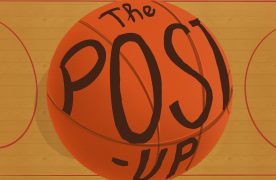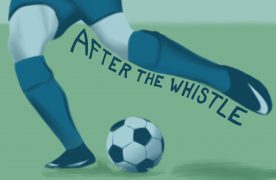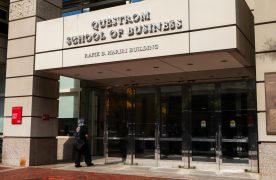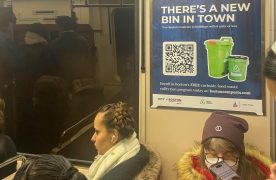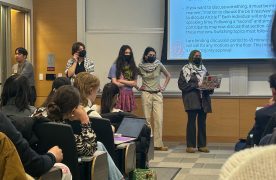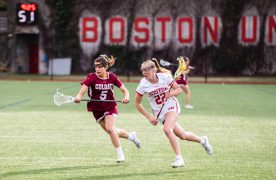Thanksgiving break will be here in less than three weeks, and students can look forward to a few restful days after the stress and chaos we have faced this semester. However, unsurprising to all, the break may come with a spike in the spread of the coronavirus.
Logistically, it’s difficult for many Boston University students to travel during Thanksgiving break even prior to the pandemic. A lot of students live out of state or out of the country, and we only get Wednesday through Friday off the on week of Thanksgiving.
So, it doesn’t make sense to fly across the country to, say, California, when just the flight there and back will occupy two days of an already-short five-day break. That’s an expensive and time-consuming trek, especially when the break is so close to the end of the semester.
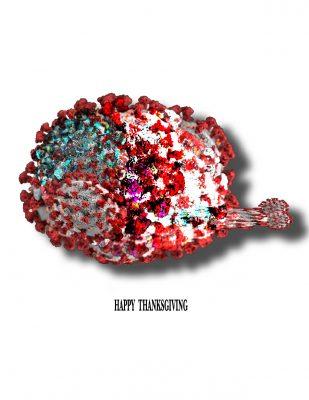
This year, public health concerns will hopefully deter people from partaking in unnecessary travel between home and campus. More than 55 million people traveled in the United States last Thanksgiving, and though the numbers are sure to be reduced due to COVID-19, airports will still be more crowded than we have seen in the last few months. Some air lines are also becoming less diligent about social distancing on planes.
Considering the increased exposure to viral particles that comes with sitting for hours in close proximity to strangers, students must recognize the risk they are running if they return to campus after Thanksgiving.
The University has no mandate to restrict travel back to BU. In reality, it has no concrete way to ensure students will stay on or off campus. In general, the Learn from Anywhere model makes it quite easy to travel and slip right under the University’s nose. You could go out of state for a short period of time and make it back for your COVID-19 test without ever notifying the school.
The University is unable to completely prevent students from traveling, but stipulations are set in place to deter it. The Thanksgiving survey was administered to students so the University can keep track of those who are on campus. But that doesn’t absolve the problem of students contracting the virus while at home and bringing it back if they choose to return.
This simple fact does not put any students at ease. Though the rise in cases makes everyone uncomfortable, it is just as much students’ responsibility as it is BU administrators’ to make wise decisions surrounding Thanksgiving plans.
BU made the right move in allowing students to stay on campus over the break rather than send its on-campus population home early for the winter. Especially in the current financial crisis, there are certainly some students who don’t have anywhere else to go, or who dread returning to home lives that might not be capable of accommodating them if they return over the break before completing final exams.
In fact, it would be counterintuitive for the University to send all students home early while under the premise of Learn from Anywhere, which was instituted for the exact reason of allowing students to remain on campus, or not, depending on their individual needs.
We cannot fault the University for not offering partial housing refunds for those who leave campus for the break. The fluidity of hybrid learning applies more so to classes than to housing. And the situation parallels the reality for those off campus: a landlord would not pardon a month’s rent if a tenant left to visit family for a few weeks. It would also be a budget nightmare to calculate everyone’s housing refunds.
Students who stay on campus may be facing a bleak, cafeteria-made Thanksgiving dinner at 3 p.m. But that’s the reality of our pandemic — we must all, for a while, be much more disconnected and lonely than we would like. However, the University has done a lot to ensure our semester made it to this point without major incident, and we should do our part to make sure things don’t come crashing down due to our desires to finally travel.





